Podcast Critic Rebecca Lavoie: "We Need to Be Able to Say 'This Show Sucked and Here's Why'"
PLUS: An Unconfirmed Rumor, a Few Good Tweets, and Some Personal News
Hello Squeeze Crew!
First, thanks to all of you who have been spreading the word about this thing — it is making a huge difference — and a warm welcome to new subscribers! Please reach out anytime.
Next up, some personal news: my family and I recently adopted Ranger, a one-year-old rescue who is sitting on my lap as I write these words (thanks to all of you who wrote in with condolences after our family dog Max passed earlier this year). It’s been a rough few months but Ranger has skyrocketed our spirits with his absolutely exhausting boundless energy and we’re grateful to have him.
Here’s what I’ve got for you today:
An Unconfirmed Rumor;
Three Tweets;
And an “as told to me” piece featuring Rebecca Lavoie, Podcast Director at New Hampshire Public Radio and host of the independent review show Crime Writers On…, Netflix’s You Can’t Make This Up, and more.
Part two of my piece on WNYC isn’t ready quite yet, but it’s coming, I promise.
Let’s hit it —
Rumor Has It
A number of sources have told me that The New York Times podcast First Person — which I have really enjoyed, sob — has been cancelled. I’m keeping this in the “unconfirmed rumor” column because my sources don’t have direct knowledge and those who might are staying mum. Regardless of whether the rumor is true, it seems likely that something is going on with NYT audio, especially as the paper blamed an 8.6% decrease in digital advertising revenue in part on “lower revenues from our podcasts” in yesterday’s Q1/23 financial report. As I fret over whether this portends layoffs at the paper, I can't stop thinking about a recent Twitter thread from the paper’s union:
If anyone at the Times is willing to speak with me off the record or on background about what is going on there please hit reply on this email, DM me on Twitter, or email me at skyepillsatwork@gmail.com (I am happy to jump to Signal upon request).
And Now, Three Tweets
#1 Defector Media Co-Founder Kelsey McKinney Calls B.S. on Executive Excuses For Layoffs
Speaking of layoffs, the team behind WNYC’s recently cancelled show The Takeaway released an episode about “pink slip parties,” in which host Melissa Harris-Perry speaks with Allison Hemming, the CEO of digital and tech recruiting firm The Hired Guns, about what to do after you’ve lost your job. The episode includes “advice for people facing layoffs, and how companies and CEOs can make these difficult moments better for their employees.” Check it out!
#2: News From the New York Public Radio Union
The union’s thread on Twitter goes on to say that “we aim to heal the fractured nature of the station, where some non-supervisory workers who create content for our platforms are recognized as part of a bargaining unit and others are not. It has prevented us from creating a workplace that works for all of us.” You can read a letter the union sent to NYPR management here.
#3: Is This A Subtweet?
Fun Fact: before launching Hell Gate, two out of its five founders worked for WNYC/Gothamist full-time and the other three freelanced for the organization.
[Pssst: Nick Pinto wrote a in-depth piece about what happened behind the scenes of The Takeaway. You can find his story here.]
As Told To Me: Crime Writer’s On… Podcast Critic Rebecca Lavoie
Back in 2013, I worked in public radio for a talk show. My husband [Kevin Flynn] and I had both written true crime books but I kept my work as a crime writer separate from my day job because public radio people can be snobby, and at that time, true crime was very much a "back of the bookstore" genre. So I literally never spoke about my career as a true crime writer at work. I didn't even invite colleagues to my book launch parties.
But then This American Life released Serial, and shortly after that, Slate released a recap show called Serial Spoiler Specials. I was excited to listen to it, but it wasn’t very good — it meandered and basically wasn’t edited. No offense to the people who made it (I know some of them now!) but I think most would agree that they have much more podcasting muscle at Slate these days.
Kevin suggested that we make a similar show, but coming from the perspective of crime writers and journalists. So when we launched Crime Writers On…, it was initially a show where we would have various guests on to discuss Serial. [About a year into its run, the crime writers began reviewing other true crime properties and adjacent pop culture; they now release two reviews per week.]
Lara [Bricker] and Toby [Ball] were our first week’s guests and right away, we knew they should be our permanent co-hosts. Lara's a true crime author who had been a private investigator and worked in criminal defense investigation for the New Hampshire Public Defender's office. It made a lot of sense to have her join the show, as Serial was about a potential wrongful conviction, but she’s also a total character — like a real-life, small-town Miss Marple. And Toby, who’s an acclaimed noir novelist, brought this dry, cynical wit and a deep understanding of social justice issues. I liked that we disagreed about a lot of stuff and, frankly, that we all sounded very different from each other.
Our mix of personalities brings this high/low sensibility to everything. For example, as a novelist, Toby is very literary in his thinking, while Lara reads mysteries about cats and I frequently extoll the virtuosity of soap opera writing. Kevin, meanwhile, has the reporting chops of a long-time television journalist but is also a total cut-up. This has been a refreshing departure from my public radio career, where things tend to be approached with a lot more...earnestness.
I understand that our panel's lack of diversity is problematic, and it's something that I didn't think enough about when building it a decade ago. Our whiteness/straightness is something we acknowledge frequently, as are the mistakes we've made as a result. There have been many times we've reviewed things and have gotten feedback about the perspectives we've lacked in our takes. This is the kind of engagement I'm grateful for, and we make it a practice to receive it, feel gratitude for it, and talk about it on the show. A diverse audience is incredibly valuable and I'm grateful to say we have one — but the only way to cultivate and serve that audience is to listen to the people who listen to you.
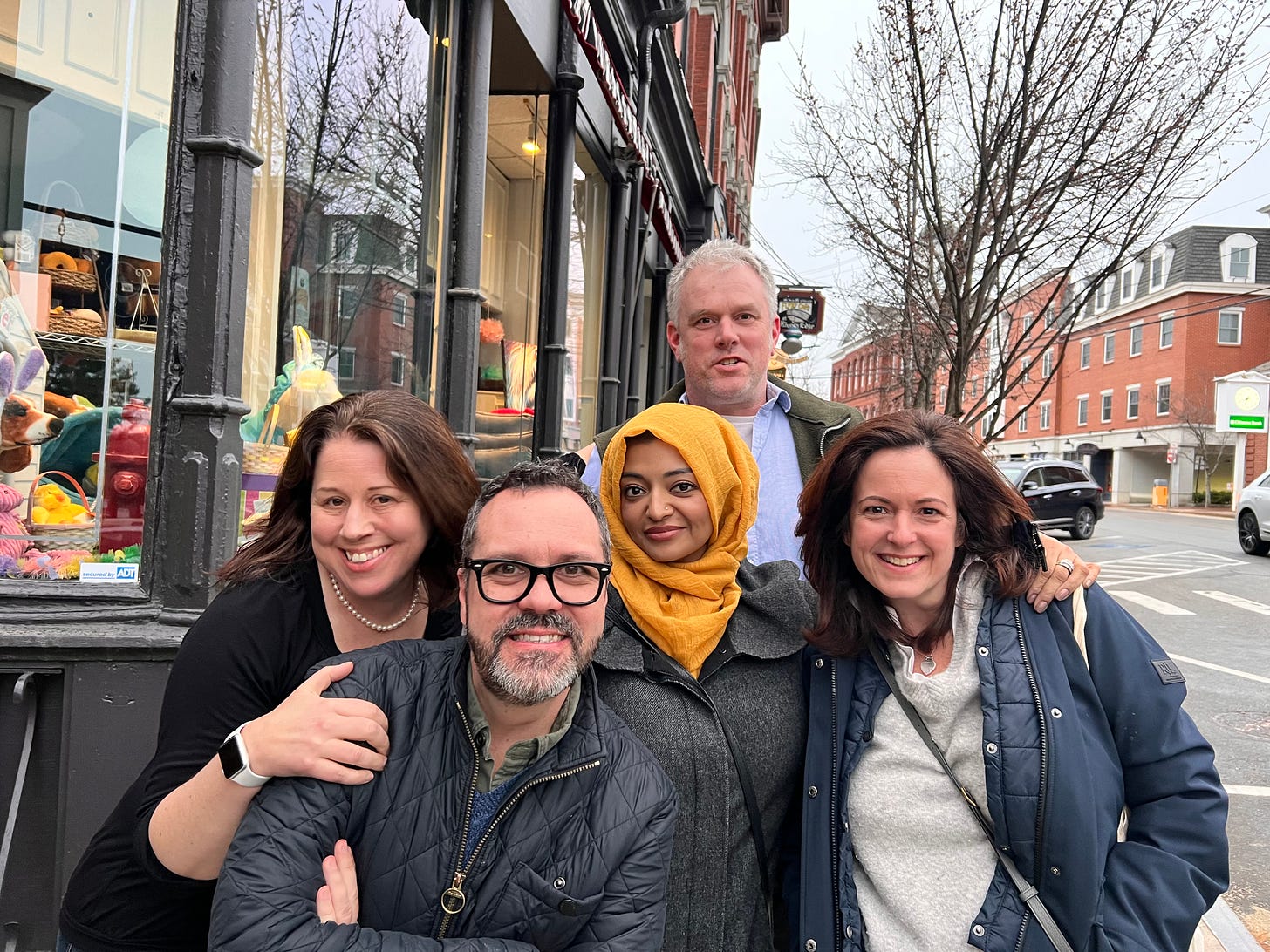
Crime Writers On… sounds off-the-cuff but is pretty rigorously edited. In the beginning, some of our hosts (including me!) didn’t have much experience being on mic and it sounded like it, so the editing process was a bit of bear. But about a year in, I asked everyone to make a change. I said, “I want you to be yourself. I don’t want you to think about having the perfect soundbite or sounding smart. Don't be afraid to say you hated something. I want you to swear. I want us to really dig in.” That changed everything. The show immediately became way, way better.
Regarding podcast criticism, Crime Writers On... is one of the only places where you'll regularly hear negative reviews — we aren't afraid to call out popular podcasts for being bad podcasts. Sure, there is podcast criticism in the world, but it's mostly recommendations or stuff like “here are the five best shows about this topic,” or “if you loved that show, then you’ll love this show!” There's almost no criticism in the style of Siskel and Ebert, where the reviewers say whether something is worth listening to or not, and why. I wanted us to fill that space and I’m actually surprised that more people haven’t.
In podcasting a lot of the stuff that is extremely popular isn't just bad, it’s actively harmful. There are podcasts that are exploitative and shows that plagiarize or cannibalize other media and people rarely call them out. There's a fear around doing so, in part because the industry is so small, but I also think the podcasting community feels like we’re still pulling ourselves up by our bootstraps, so we shouldn’t be critical of each other. In my view, that’s ultimately bad for the industry. We need to be able to say, “This show sucked and here’s why,” or “The way this show was made is unethical.” How else will networks be disincentivized to profit from bad content? And how else will listeners be waved off when all they're getting is what's pushed at them from chart algorithms?
The first time I experienced people feeling hurt by our criticism was when we panned Habitat from Gimlet. I got DMs from people saying, “I didn't like the show either but so-and-so was upset by your review.” My reaction was, why, in this medium, are people expecting not to be criticized? We always back up our critique with reasoning — and we are always aware that there are real people who work on these shows. But I also know that podcasting is part of the media industry, and every other area of media is subject to criticism, so we shouldn't be holding ourselves to a lower standard. Sure, it can be a little uncomfortable when I meet someone who worked at a show that got a thumbs down from me, but it’s always fine after we start talking. In fact, I'm very good friends with some of the people who've made some of my least favorite shows.
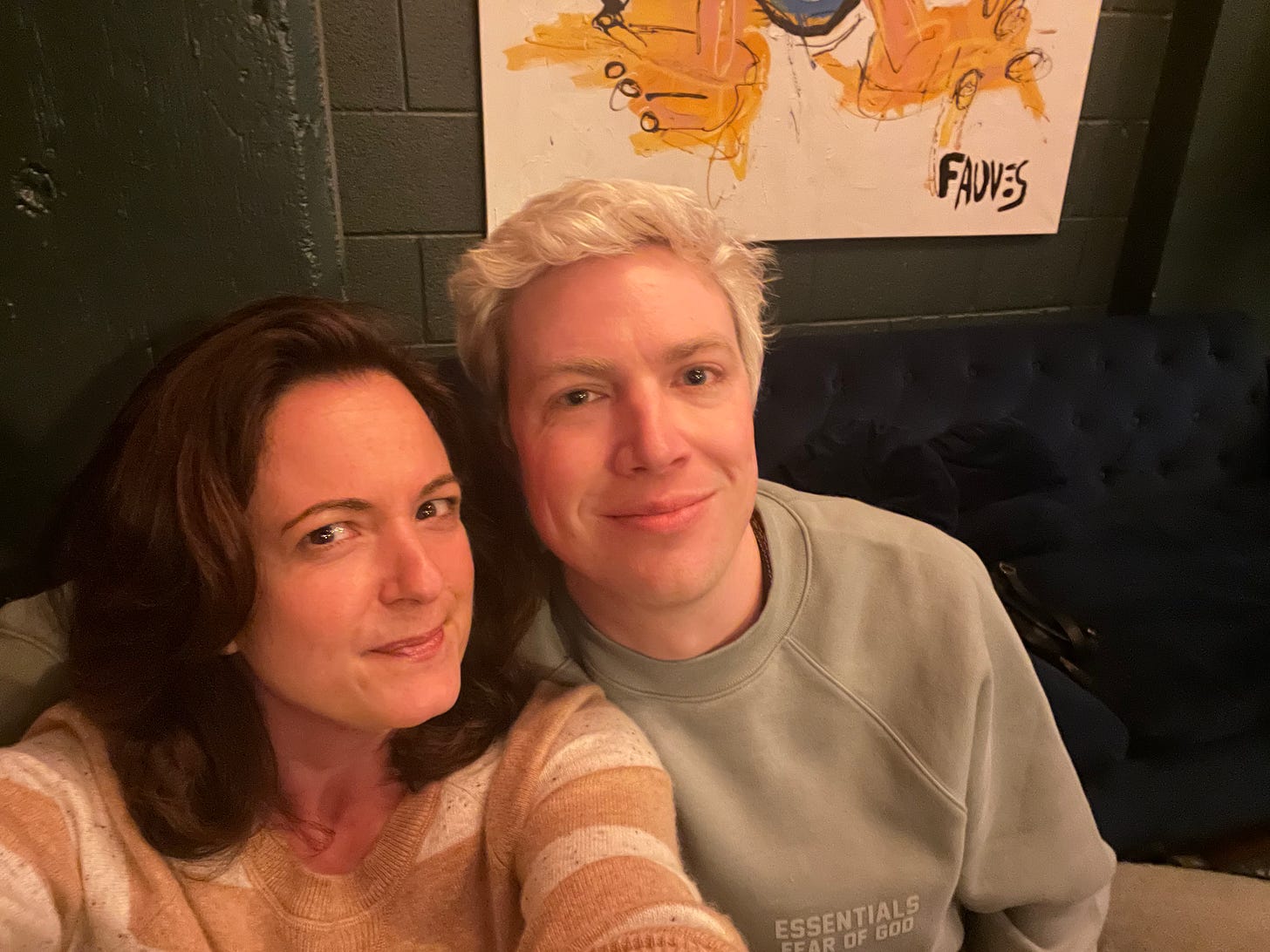
I sometimes do think about whether a bad review could potentially hurt my professional life down the road — like if a VP of Content listened to an episode where I pan a show they love and maybe swear a few times. But I’ve ultimately decided to lean into it further rather than do the opposite because of some imagined future career consequence. I want to be known as an honest podcast critic. I think it makes me a better editor at work and I think it makes me more trustworthy in the industry overall. I want people to know that if I say your show is good, it's good. I'm coming into it as an honest broker.
After all these years, I still love hearing that Crime Writers On... has taught people to become better listeners themselves. When I see comments in our Facebook group like, “Wow, the mixing is really poor on this podcast; a TV show would never get away with terrible mixing,” it’s a total thrill.
Thanks to Rebecca for leaning into this interview!
That’s all from me this week; see you soon.
Skye
Postscript: I’m trying to squeeze as much content as possible out of this final season of Succession, which entails — and I cannot stress this enough — listening to as many recap shows as possible. My queue includes episodes of The Prestige TV Podcast, David Chen’s Decoding TV, HBO’s Succession Podcast with Kara Swisher and more, but today I must recommend that you hit play on this week’s Firecrotch & Normcore: A Succession Podcast’s1 interview with the one and only KERRY! (AKA accomplished actor Zoë Winters.)
It is a revelatory episode in which the hosts and Winters break down:
Her hair (spoiler: it’s real!);
Kerry’s backstory (she has “really terrifying” political views);
Her ATN audition (“I always thought about not knowing what to do with your hands…”);
Deleted scenes involving an assault on her hairdresser;
What Logan Roy smells like;
AND MORE!
It’s delicious and you can listen to it here (the interview begins around minute 33).
The name of the show is a reference to Roman’s sick and twisted nicknames for Shiv and Tom.




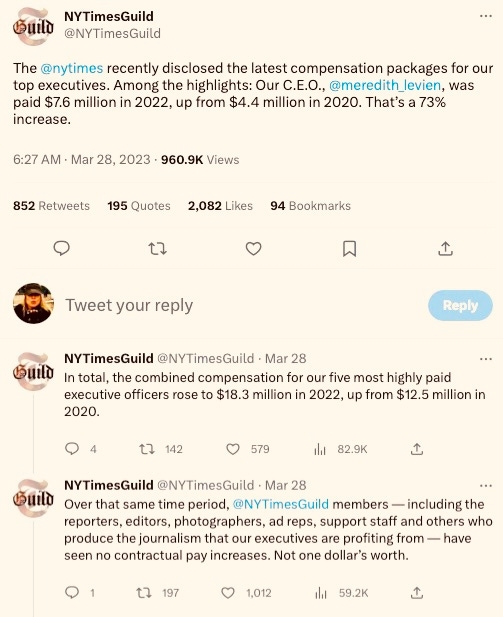

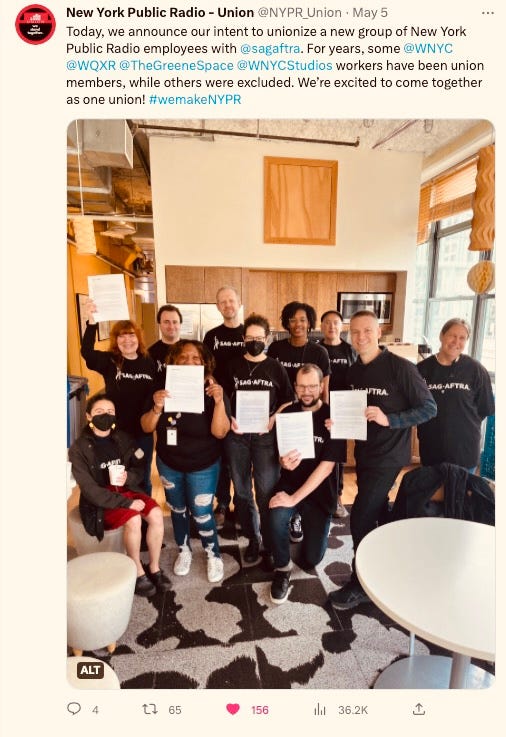
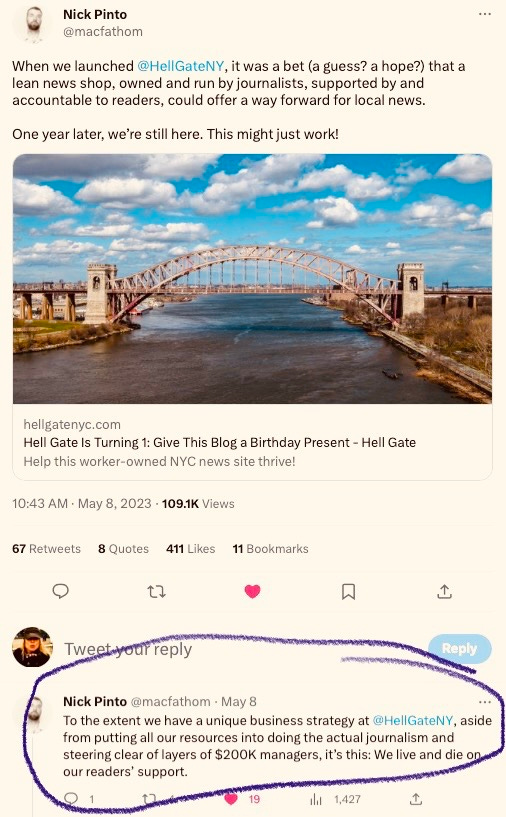
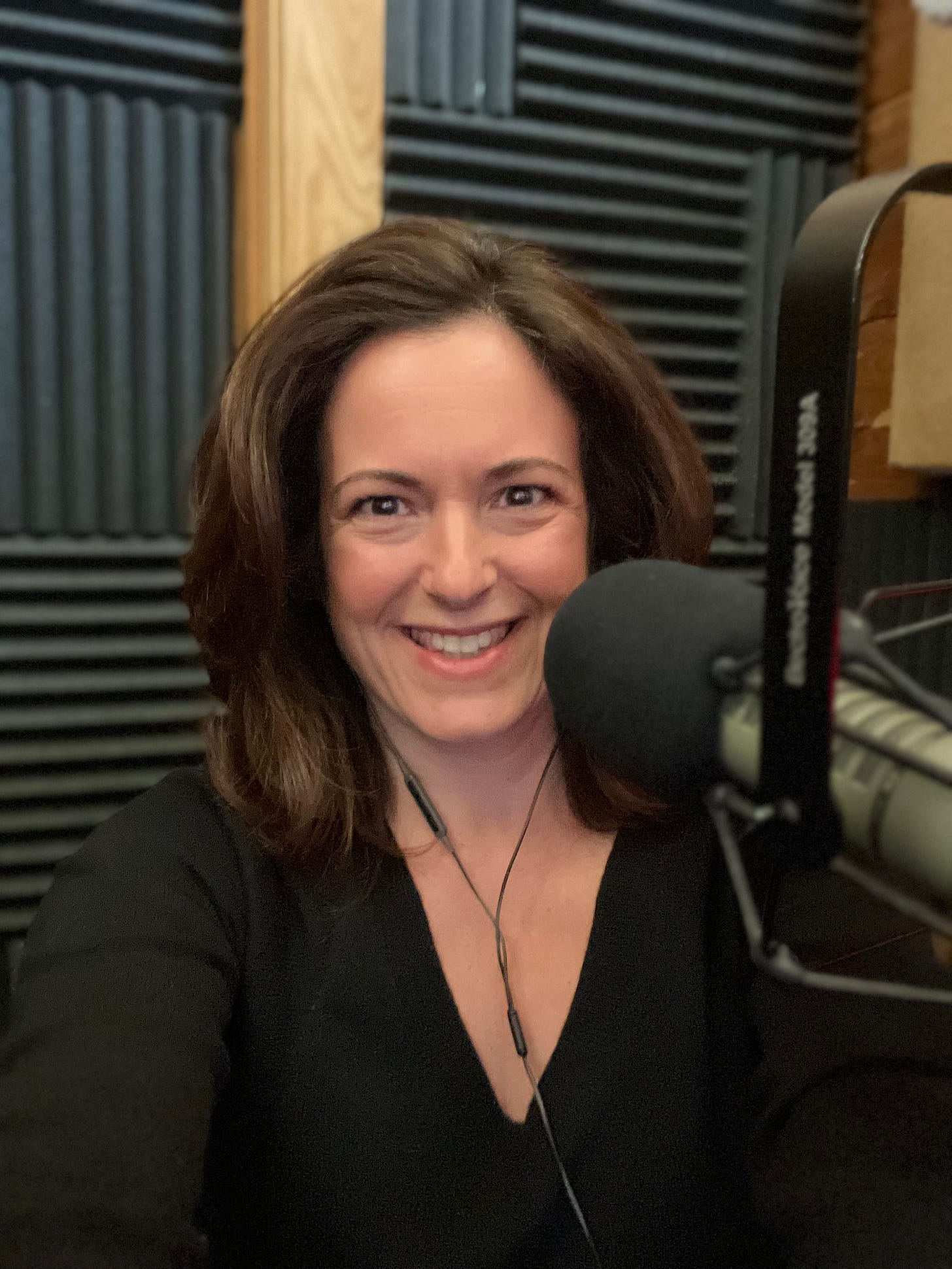
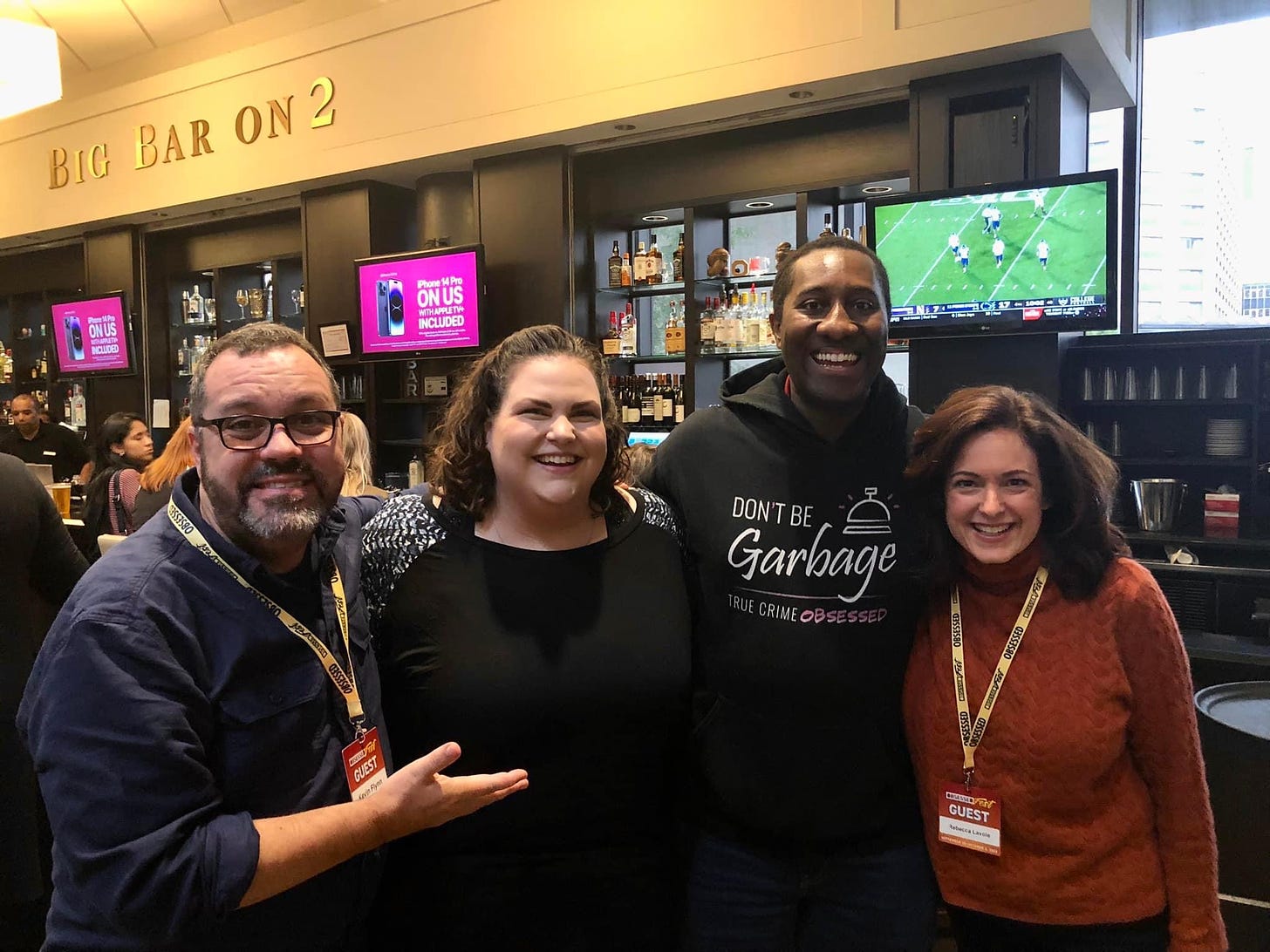
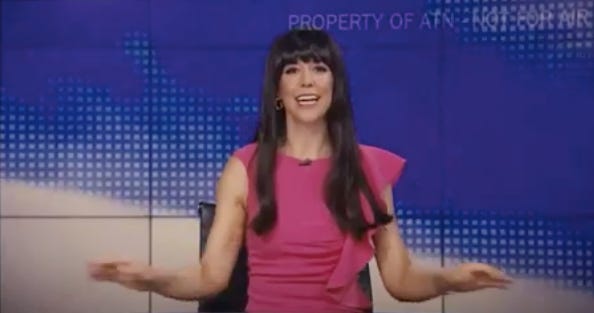
I really loved the thoughts on podcast criticism from Rebecca and agree with all of it. I’ll fully admit that I avoid negative criticism and instead lean into positive recommendations, but personally I’m also not really trying to be a critic. But I definitely want to read more “this show sucked and here’s why” type writing, but the “smallness” of the industry is a very real thing that is intimidating for sure.
I didn’t get into First Person. TAL ran a lot of ads for it, including one I recall where Ira Glass essentially said, if I recall correctly, the ads and soundbites for this show are not good or representative of what the show is and please give it a listen in its entirety. I think i had listened to an abortion episode, but something didn’t click. Still it stinks when you like a show and it gets canceled. Sorry.
I will say I was surprised today to hear the ads on the daily for the new NYT Opinion podcast because aren’t there a ton of those already? It felt reminiscent of Left, Right and Center. Does that public radio show still exist? I feel like they have so many opinion people, newsletters, and now the podcast but it’s not well organized.
Lastly I am glad The Run Up is back. I’m an Astead fan.